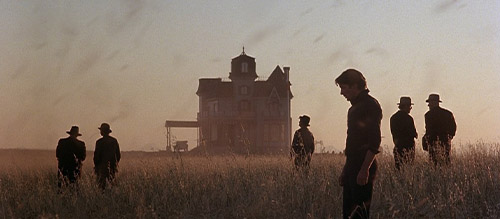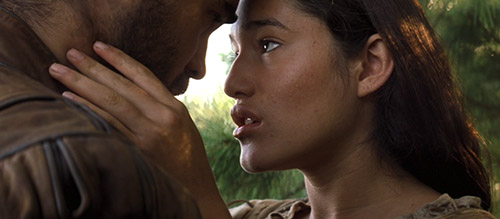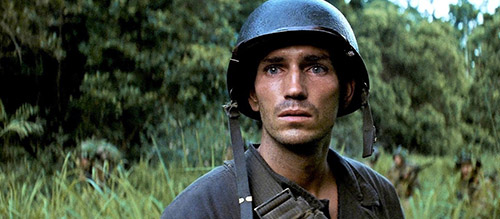Terrence Malick Films Ranked
5. Days of Heaven (1978)
Days of Heaven is, in the context of Terrence Malick’s filmography, something of a contradiction. The 1978 release is without a doubt one of the director’s most immediately grabbing, beautiful and rich offerings, yet it is also the film that forced him into a twenty year hiatus from the industry at the behest of the studio system’s ever-growing dictatorial rule. Battles with Paramount over rising star Richard Gere’s hair (which was far from period accurate and was kept from being so at the request of the actor’s team and the studio backing him as their next marketable leading asset), a change in cinematographer and confrontations over screenplay notes made Malick’s experience so poor that he would lose all trust in the industry – even upon his reemergence, Malick had contracts signed permitting him total control over many aspects of his films, and in his later career has been independently funded to avoid the profit-chasing studio machine. Looking closely, Days of Heaven is not without its cracks, but so much of Malick’s stamp is felt in its 94 minute runtime, the reevaluation of another uniquely US myth telling an ultimately tragic story that is so beautifully scored by the legendary Ennio Morricone (in one of his most underrated works) and magically photographed by Néstor Almendros, then Haskell Wexler and, if rumours are to be believed, even Malick himself, that it is undeniably one of the great films of the 1970s despite all that was working against it; a spectacular and thoroughly cinematic vision from a filmmaker quickly proving that his philosophies were much too strong to suppress.
Recommended for you: Top 10 Alfred Hitchcock Films
4. The New World (2005)
It took 7 years for Terrence Malick to follow up on his 1998 return The Thin Red Line, which seemed like quite the wait for an industry that had just become reacquainted with his work. The New World, released in 2005, was something of a return to his filmmaking roots, passing on the epic casts, sets and set pieces of his World War II movie to instead re-focus on the intimacy of developing relationships told through floating cinematography and poetic voiceover. As he did with Badlands and Days of Heaven, Malick took aim at another uniquely American myth, this time of the so-called founding fathers of the United States and the legend of John Smith (played here by Colin Farrell) and Pocahontas (Q’orianka Kilcher). Vitally, it reworked the myth of the conquering invaders, painting them as savage and arrogant people intent on ownership and power dynamics, and followed Pocahontas as she was shipped to the United Kingdom and showcased in a shallow world of overindulgence. At close to three hours in length, The New World perhaps overstays its welcome to a degree, but Malick was intent on leaving no stone unturned in his dedication to creating a relative masterpiece of deep and unspoken truths.
3. The Thin Red Line (1998)
Arguably among the greatest war movies ever made, and certainly one of the American studio system’s most unique, The Thin Red Line is the type of World War II drama that has to be seen to be believed. Anchored by Jim Caviezel, but featuring such an ensemble of star names that powerhouses like Bill Pullman and Mickey Rourke had their scenes cut from the film altogether, Malick presents war as a brutal game of chance manipulated by the desires of those unseen on the battle grounds, death forced on people far removed from the politics and inhumanity of the nations that wage their global wars. The first film Malick directed in twenty years following Days of Heaven, The Thin Red Line also acts as a unique insight into his filmmaking intentions, this being the obvious launching point for his existential questioning of his perceived battle between the way of grace and the way of man that has become of such structural importance to his later works. It is a beautifully shot piece, with a phenomenal score from Hans Zimmer that has since been reworked for Inception, and works beautifully to showcase the dichotomy of man as being both incredibly vicious and capable of sincere feats of beauty and love.




